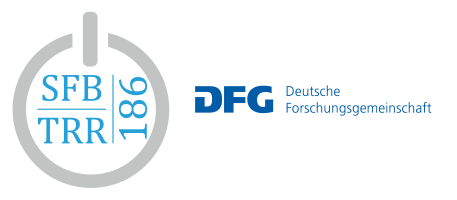Machine-learned coarse-grained molecular dynamics of molecular complexes.
Molecular switches are generally characterized by dynamical multi-protein complexes and assemblies,
undergoing transitions between different transiently populated states. Such systems are challenging for both
experimental and theoretical characterization, because of the broad range of timescales involved and their
intrinsically dynamical nature. This project focuses on the quantitative modelling of protein complexes and
assemblies for three different molecular systems. We will extend and test our newly developed methodology
and apply it to study several switches in this CRC: (i) the dynamics and interactions of the protein complexin
as part of the synaptic exocytic mechanism, in collaboration with A04 [Söllner (HD)/ Rosenmund (B)] (ii) the
exchange of peptides by the major histocompatibility complex (MHC), a key process for T-cell mediated
immune response, in collaboration with A21 [Freund (B)/ Höfer (HD)], and (iii) the interactions and binding of
substrate proteins with the transmembrane enzymes of the DHHC family, a key step in palmitoylation, in
collaboration with A05 [Freund (B)/ Brügger (HD)]. To reach time and length scales that are biologically
relevant, we use a combination of atomistic and coarse-grained models designed by machine learning and
incorporate experimental data. In the previous funding periods, we have focused on the method development,
and we have produced robust computational tools that provide a solid foundation for the characterization of
multi-protein complexes on long timescales, which will be the focus of the next funding period, in collaboration
with our experimental counterparts.
Prof. Dr. Cecilia Clementi (FU Berlin)
Prof. Dr. Frank Noé (FU Berlin), until 09/2022
Dr. Nuria Plattner (FU Berlin), until 06/2020
